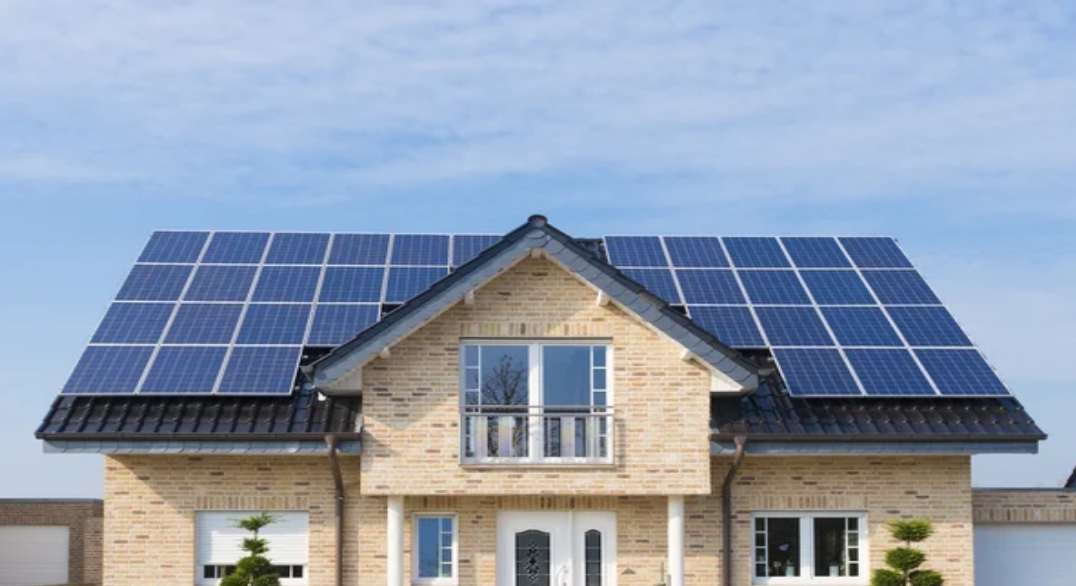Solar Panels: The Cost-Effective Way to Power Your Home
- Written by NewsServices.com

Solar panels for home are becoming increasingly popular amongst homeowners all over the world. They provide an environmentally friendly and cost-effective way to reduce electricity bills and generate clean energy. Solar panel systems can be installed on roofs, in backyards, or even as ground-mounted structures. Solar panels have a wide range of benefits including reducing carbon emissions, increasing property value, and cutting down on electricity costs. Moreover, they require minimal maintenance with no fuel or toxic materials needed to operate. With so many advantages, it’s no wonder why solar panels are growing in popularity!
Advantages of Solar Panels for Home Usage
If you are looking for a way to reduce your energy costs, solar panels can be a great solution. Solar panels for home usage have become increasingly popular in recent years due to the environmental and economic benefits they offer. With solar technology becoming more affordable and efficient, many homeowners are turning to solar power as an alternative energy source. Here we’ll discuss some of the advantages of using solar panels at home.
The most obvious advantage is that solar energy is renewable and clean. Solar power does not produce any air or water pollution, so it is much better for the environment than traditional fossil fuels such as coal or oil. Additionally, solar panel installation in North Sydney can help you save money on your electricity bills since you will be generating your own electricity instead of relying on your local utility company’s grid-supplied electricity which can be costly over time.
Another benefit of using solar panels at home is that they require very little maintenance once they are installed properly by a professional installer. In fact, most systems come with warranties that cover any potential repair costs associated with their use over time so you don’t have to worry about expensive repairs down the line.
Costs and Savings of Installing Solar Panels
In recent years, more and more homeowners have been turning to solar energy as an alternative source of electricity. Installing solar panels on your home can be a great way to reduce your energy bills and help the environment. However, it's important to consider the costs and savings associated with installing solar panels before making any decisions.
The initial cost of installing solar panels can vary greatly depending on the size of your system, where you live, and what incentives or rebates are available in your area. Generally speaking, you can expect to pay anywhere from $15,000-$30,000 for a full-scale system installation. Fortunately, many states offer generous tax credits for those who choose to install solar system Gold Coast that can offset some of these costs. Additionally, many financing options are available that will allow you to spread out payments over time rather than having to pay upfront for the entire cost of installation.
Types of Solar Panels
Solar panels are becoming increasingly popular as a clean, renewable source of energy. As more people become aware of the benefits of solar power and the potential to reduce their monthly electricity bills, many are beginning to explore investing in solar panels for their homes.
When considering installing solar panels, it’s important to understand the different types available and which one is best suited for your needs. Here is an overview of the various types of solar panels on the market today.
Monocrystalline Solar Panels: Monocrystalline solar panels are made from single-crystal silicon cells that have been cut from cylindrical ingots. This type of panel is very efficient in converting sunlight into electricity and they take up less space than other types since they consist of only one layer instead of multiple layers like polycrystalline or thin film models. The drawback to monocrystalline is that they tend to be more expensive than other options due to their higher production costs.
Polycrystalline Solar Panels: Polycrystalline solar panels are made with multiple silicon cells arranged into a square shape with each cell containing multiple crystals in them (hence why they’re called polycrystalline). They tend to be slightly less efficient.
Conclusion
Overall, solar panels for homes are a great way to reduce one's carbon footprint and save money on energy bills. With the cost of solar panels falling, it is becoming increasingly affordable and easy to install them. In addition, advances in technology have made solar panel systems increasingly efficient and reliable. Investing in a solar panel system can be an excellent long-term investment that will pay off both financially and environmentally.

















